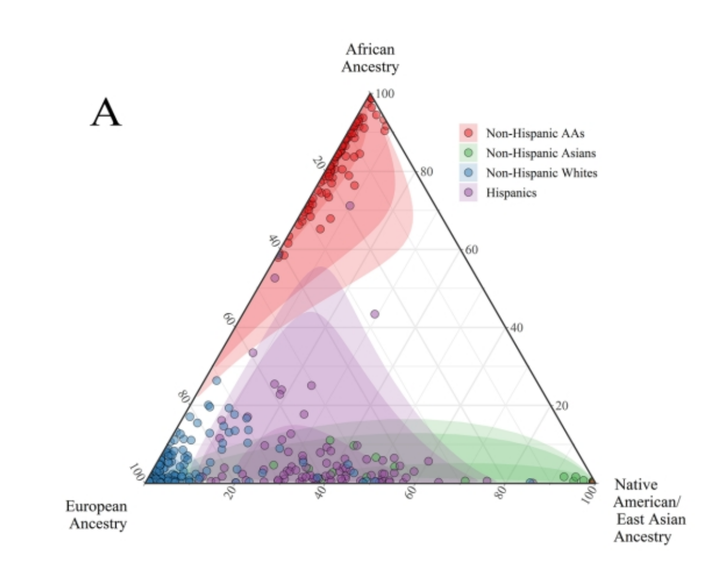Genetic Admixture and Survival in Diverse Populations with Pulmonary Arterial Hypertension

Abstract
Limited information is available on racial/ethnic differences in pulmonary arterial hypertension (PAH). Determine effects of race/ethnicity and ancestry on mortality and disease outcomes in diverse patients with PAH. Group 1 PAH patients were included from two national registries with genome-wide data and two local cohorts and further incorporated in a global meta-analysis. Hazard ratios (HRs) were calculated for transplant-free all-cause mortality in Hispanics with Non-Hispanic whites (NHWs) as the reference group. Odds ratios (ORs) for inpatient-specific mortality in PAH patients were also calculated for race/ethnic groups from an additional National Inpatient Sample (NIS) dataset, not included in the meta-analysis. After covariate adjustment, self-reported Hispanics (n=290) exhibited significantly reduced mortality versus NHWs (n=1970) after global meta-analysis (HR 0.60[0.41-0.87], p=0.008). Although not significant, increasing Native American genetic ancestry appeared to account for part of the observed mortality benefit (HR 0.48[0.23-1.01], p=0.053) in the two national registries. Finally, in the NIS, an inpatient mortality benefit was also observed for Hispanics (n=1524) versus NHWs (n=8829; OR 0.65[0.50-0.84], p=0.001). An inpatient mortality benefit was observed for Native Americans (n=185; OR 0.38[0.15-0.93], p=0.034). This study demonstrates a reproducible survival benefit for Hispanic Group 1 PAH patients in multiple clinical settings. Our results implicate contributions of genetic ancestry to differential survival in PAH.